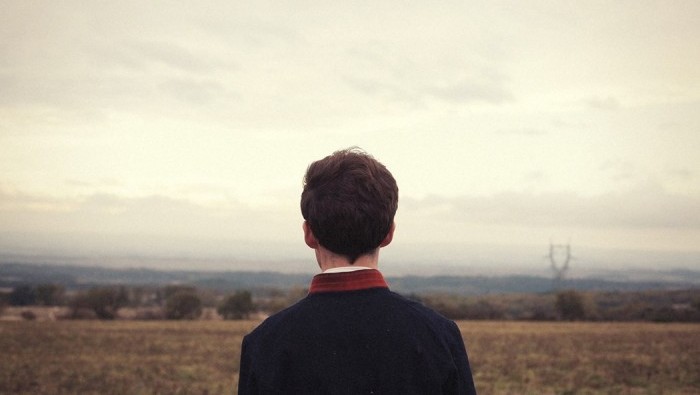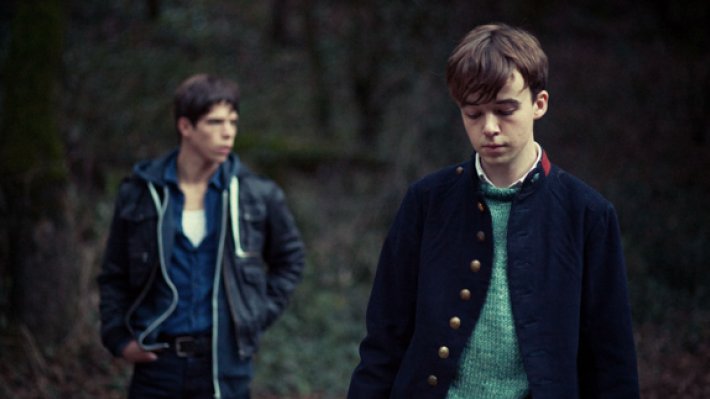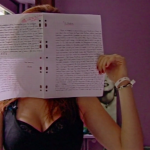By Gita Subaran
Director: Andrew Steggall
Departure is a film about drowning and having to hold one’s breath to survive. It is as much a story about Elliot, who holds back his intimate affections for his friend Clément, as it is about his mother Beatrice who holds back her longing for companionship. Ultimately we find ourselves at the centre of two heightened melodramas. Yet the odyssey they must set upon to ultimately free themselves from their inner demons is full of impediments and becomes the focus of our attention.
Here the charming setting of the rural French countryside sets the tone as we follow our protagonist on his daily strolls in the midst of lush and green sceneries. To a certain extent, we are reminded of the lost soldier trying to make his way back home. Yet this backdrop in the South of France also puts us in the mood for what is to come. As such it adequately draws us back to the question Elliot raises at the beginning of the film: “Do you think you can know something before you know it?” Of course, it is impossible to comprehend whether he is referring to something specific or not with these opening lines, but the breath-taking French mise-en-scène and atmosphere pave the way to the film’s ominous conclusion. In a similar fashion to that of a thriller, we find ourselves pondering and reflecting on the outcome of the events laid before us. Additionally – and almost by instinct – we pick up each painful and enjoyable instance we are presented with, like clues to an elaborate puzzle, and manage to come up with our own answers.

While the plot might seem overtly simplistic, it is nevertheless rich in subtext and both the French and English audiences can appreciate references to their own cultures. Elliot’s French might not be perfect, but as a lover of words he manages to demonstrate his passion for poetry quite effortlessly. At times, some dialogues resemble verses and some scenes function as poetic stances accompanied by a mellow instrumental tune. The soft piano notes manage to project the characters’ states of mind and mostly Elliot’s sensibility and fragility when it comes to his emotions. Like the poète maudit, Elliot perpetually finds himself on the brink of two worlds: the sometimes cruel and harsh world he lives in, and the carefree and accessible world he has created for himself and Clément among the wilderness. As a quiet and reserved boy, as opposed to Clément who is somewhat brash and impulsive, it makes sense that the connection they share is somewhat frightful and tense. As their relationship blossoms over the span of a week, it also points towards the hardships of growing up and a certain desire for freedom and independence. Without a doubt these are themes that are bound to bring back memories to young adults and seniors alike.
In the end, Andrew Steggall’s dramatic coming-of-age tale is about leaving the so-called stage of youth, with all of its complexities, and joining the complicated stage of adulthood. As the title suggests, we are to witness a departure, and one that involves entering the exhilarating terrain of manhood – portrayed here as a rite of passage. Indeed it is not easy growing up, especially when one is part of a broken family, but we trust that our protagonist will stay afloat during the course of his journey.
Watch Departure on FilmDoo.com (UK & Ireland only)








